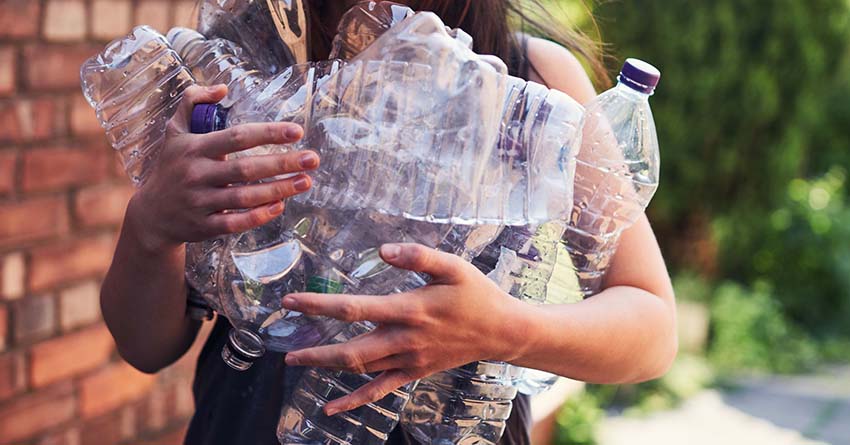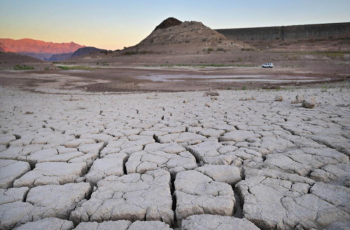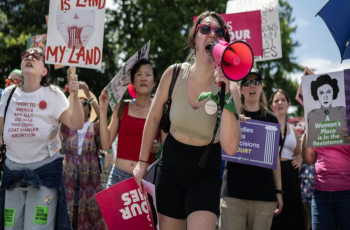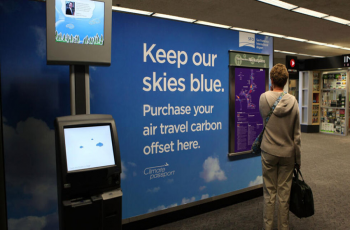Recycling Tips: How To Avoid Throwing The Wrong Stuff In Your Bin
There are so many confusing recycling rules! These tips will help you figure them out

Photo Credit : HuffPost
Recycling is confusing. Can you throw a styrofoam takeout container in the bin, or should it go to a landfill? What about a pizza box? A plastic bag? A garden hose? A staggering 92% of Americans are unsure about all this, according to a study that the Grocery Manufacturers Association published in April.
Depending on where you live, the rules around recycling can differ wildly. In some places, people are allowed to throw all their recyclables into the same bin. In other towns, they must separate paper or cardboard from cans and bottles. Requirements for plastics are particularly confounding, which partly explains why only 9% of plastics get recycled.
Just because you throw something in the bin doesn’t mean it will get turned into a new product automatically. “People are well-intentioned,” said Pete Keller, vice president of recycling at Republic Services, one of the largest waste management companies in the United States. “They confuse re-use or donation with ‘recycle.’ We get lampshades or clothes they don’t belong in curbside bins. But we also get diapers and half-eaten pizzas.”
If you throw something into the bin that doesn’t belong there, the offending items might be plucked out and sent to a landfill. But improperly recycled things often elude filters. They might mess with sorting equipment and cause delays at recycling plants, or get mixed in with the good stuff and shipped out to a new location for further processing, contaminating whole bales of otherwise valuable materials.
All this confusion has helped create a recycling crisis that came to a head in 2018. China, which for 20 years, had imported about half the world’s plastic, paper and metal for recycling, suddenly closed its doors to much of this trash as part of a crackdown on pollution. Many of the items China had been buying from abroad weren’t actually getting recycled: Some were too difficult and expensive to process, others were too contaminated with unwashed or non-recyclable materials to be of any value. Instead, they were sent to landfills, dumped in rivers or burned.
In the wake of China’s ban, other Southeast Asian countries began implementing similar restrictions on imported trash. And as a result, some municipalities across the U.S. have had to scale back or cancel recycling programs.
In order to make recycling easier and more effective, governments and big businesses will have to work together to reduce the amount of trash we produce while devising more responsible ways to dispose of it.
In the meantime, there are some simple things we can do to be smarter about what we try to recycle.
1. Know what to toss in the bin...
The best practice is to keep it simple and focus on basic items: You can probably place plastic soda bottles and aluminum cans into your recycling bin, no matter where you live. Glass bottles, paper and cardboard are also fairly safe bets, though many communities require them to be separated from other recyclables.
Plastics can be really tricky. Items that have the “recycling symbol” stamped on them the triangle with the number in the middle aren’t necessarily recyclable. In fact, recyclers don’t actually want you to try to use those symbols as your guide, says Cody Marshall, a strategist at The Recycling Partnership, a nonprofit that funnels corporate money into local waste infrastructure. “The number on the container is really for people to identify the type of resin it is. That’s not helpful for the common consumer,” Marshall told HuffPost.
Keller agrees, noting that his company tries to use words that people actually use when talking about recyclable plastics: water bottles, milk jugs, detergent bottles, butter tubs. Rigid plastics like those tend to be recyclable.
2. ... and what not to.
It’s just as important to understand what doesn’t belong in your curbside collection bin. Most municipalities post their recycling rules online. You can look yours up by going to the website BeRecycled.org, which lets you enter your ZIP code and returns a list of local websites with official information. It’s very handy.
Marshall said that big recycling companies all over the country struggle with the same problem items: hoses and cords, plastic bags, propane tanks, needles and clothing. These things shouldn’t be mixed in with your household recycling.
Flexible, stretchy or crinkly plastics should not be put in the curbside bin either. They’re a smaller part of the problem, but the guidelines around these items tend to be confusing.
3. Do a quick cleaning, but you don’t have to go crazy.
Try to empty or scrape as much food out of containers as possible. You can even rinse them out. But you don’t have to wash them thoroughly, especially if you live in a drought-prone area. Just make sure they’re relatively clean when you throw them into the bin. This is particularly important if you live in an area where your paper, plastics and cans all go in the same bin food residue or water can ruin perfectly good paper.
4. Don’t bag it.
Unless you live in a place that requires you to secure your recyclables in plastic bags, keep them loose in the curbside bin. New York City residents, for example, are supposed to place their recycling in plastic bags. But many municipalities don’t allow this.
“A lot of the time, it’s not safe for our employees to rip those bags open, or it takes too much time,” said Keller. “A lot of bagged stuff goes right to the landfill.”
5. When in doubt, throw it out.
If you’re not sure whether something can be recycled, don’t place it in your curbside bin. Yes, it might end up in a landfill. But that’s where it’d go if you tried to recycle it anyway.
Waste Management, another of the country’s biggest trash companies, “spends about 140,000 hours every year cleaning plastic bags and tanglers (garden hoses, Christmas lights, chains, etc.) out of our equipment,” said company spokeswoman Janette Micelli, adding, “That’s time that could be spent recycling more materials.” Better to err on the side of one recyclable item not getting recycled than one non-recyclable item messing it up for a whole day’s collection.
“Not everything is made to be recycled,” said Marshall, nothing that bad recycling practices also drive up the cost of recycling services.
For things you’re unsure about, like batteries, lightbulbs and propane tanks, there might be a local program near you that will help you dispose of them. (Ask Google or BeRecycled.org.) Plastic bags can be returned to grocery stores in many cases.
If there are no local programs, then they go in your trash can.
This article originally appeared on : HuffPost
-

Moldovan youth is more than ready to join the EU
2024-04-18 -

UN says solutions exist to rapidly ease debt burden of poor nations
2024-04-18 -

'Human-induced' climate change behind deadly Sahel heatwave: study
2024-04-18 -

Climate impacts set to cut 2050 global GDP by nearly a fifth
2024-04-18 -

US sterilizations spiked after national right to abortion overturned: study
2024-04-13 -

Future of Africa's flamingos threatened by rising lakes: study
2024-04-13 -

Corporate climate pledge weakened by carbon offsets move
2024-04-11 -

Humanity lost 'moral compass' on Gaza: top UN official
2024-04-10 -

No.1 Scheffler says patience and trust are secrets to success
2024-04-10 -

From homeless addict to city chief: the unusual journey of Canadian mayor
2024-04-10
